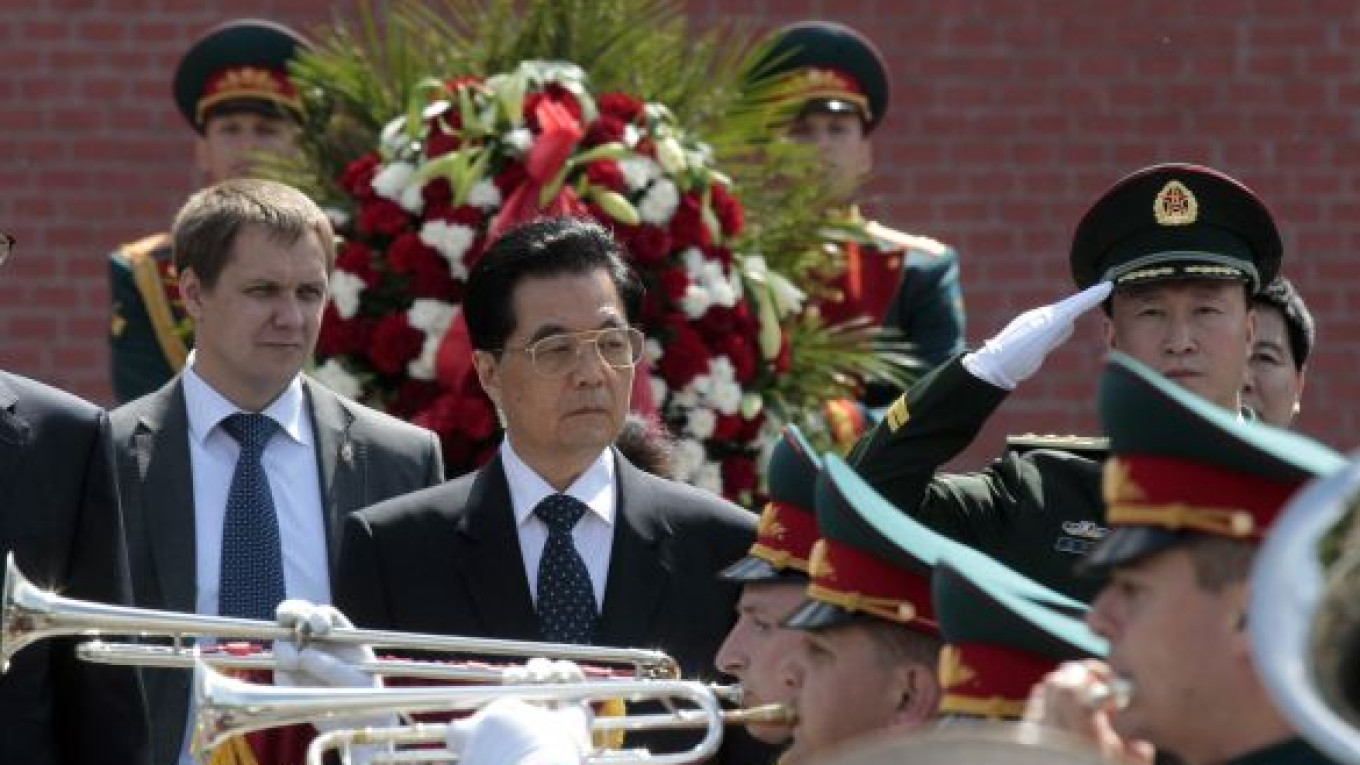China and Russia are finalizing documents to put an end to a fractious dispute over a crucial gas deal, President Dmitry Medvedev said Thursday after meeting his Chinese counterpart Hu Jintao.
The two sides have been bogged down in disagreements on pricing for the gas that the energy giant would pump to China via two routes.
"At the moment, documents on gas supplies to China are being finalized," Medvedev told reporters in the Kremlin. "This is a strategic document, meant for the decades ahead."
Hu made no direct mention of the spat, but said Russia and China viewed energy as a "key area" for cooperation.
"Both sides are willing to keep pushing forward this cooperation on a mutually beneficial, win-win basis," Hu said.
Deputy Prime Minister Igor Sechin, speaking just after Hu and Medvedev's briefing, said the talks had "advanced considerably."
Hu, in Russia for a state visit, was to meet Prime Minister Vladimir Putin at the headquarters of Russia's state controlled gas export monopoly Gazprom on Thursday.
Negotiators for China National Petroleum Corp. have signaled that they will pay no more than $250 per 1,000 cubic meters, sources at Gazprom said Wednesday.
Russia's gas export monopoly is still targeting a price that will make deliveries to China as profitable as those to their European clients.
An agreement on the gas project would be a big trophy for Hu, who has courted Russia as a way of increasing energy security as heady economic growth increasingly forces China to look abroad for oil and gas.
Under early terms hammered out over five years by negotiators, Russia will deliver 30 billion cubic meters per year from fields on the Arctic Yamal Peninsula, the same fields that supply Europe, via pipeline through the Altai region to northern China.
China would also like to contract an additional 38 bcm from yet untapped fields in East Siberia.
In recent talks in Moscow, Chinese negotiators won consent for an eastern pipeline route from those fields in addition to the Altai route.
As talks have dragged on between Russia and China, however, China has increased its purchases of gas from Russia's rivals in Central Asia, Uzbekistan and Turkmenistan.
A Message from The Moscow Times:
Dear readers,
We are facing unprecedented challenges. Russia's Prosecutor General's Office has designated The Moscow Times as an "undesirable" organization, criminalizing our work and putting our staff at risk of prosecution. This follows our earlier unjust labeling as a "foreign agent."
These actions are direct attempts to silence independent journalism in Russia. The authorities claim our work "discredits the decisions of the Russian leadership." We see things differently: we strive to provide accurate, unbiased reporting on Russia.
We, the journalists of The Moscow Times, refuse to be silenced. But to continue our work, we need your help.
Your support, no matter how small, makes a world of difference. If you can, please support us monthly starting from just $2. It's quick to set up, and every contribution makes a significant impact.
By supporting The Moscow Times, you're defending open, independent journalism in the face of repression. Thank you for standing with us.
Remind me later.


